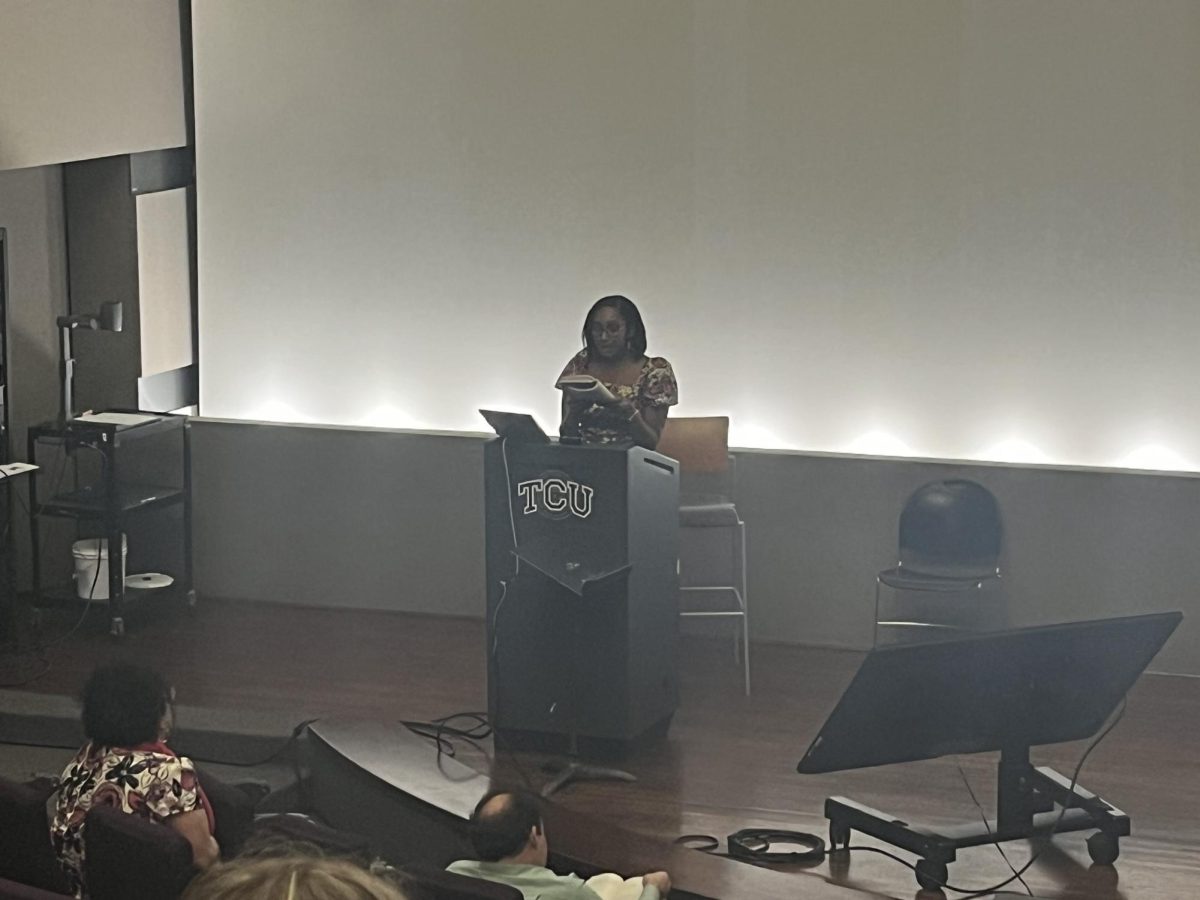Campus environmental activists point to recent progress at TCU: The cups, silverware and straws in The Main are now biodegradable, a campus-wide recycling program is almost a reality and there aren’t nearly enough purple bikes to go around.But they warn that TCU is still far behind the trend in colleges and universities becoming more environmentally responsible and sustainable.
Keith Whitworth, sociology professor and founder of the Purple Bike Program, said TCU’s behind in the trend of environmental responsibility and it’s a reflection of its failure to meet the mission statement.
“If we fail to educate students about being green and about sustainability, then we’re not sending out ethical leaders or responsible citizens in the global community,” Whitworth said. “Were sending out business majors, students with MBAs, that are going out into the work world, and unless they have that understanding of what means to be sustainable, we’re missing the boat.”
From the ground up
Among TCU’s biggest problems are its buildings, both old and new.
None of the structures on campus, including the ones under construction, are certified under the Leadership in Energy and Environmental Design standards, or LEED, program of the United States Green Building Council.
Yet other top universities in Texas are making LEED certification a priority.
Southern Methodist University built a new engineering building in September 2006 that was fully LEED-certified, and all of Rice’s future buildings will be LEED-certified, according to Barbara White Bryson, Rice’s associate vice president of facilities engineering and planning.
The University of Texas at Austin has plans for several of its new buildings to be LEED-certified, according to the College Sustainability Report Card.
LEED certification has become an industry standard in assessing the sustainability and efficiency of a structure.
According to the United States Green Building Council Web site, for a building on a college campus to become LEED-certified it is evaluated in 29 categories within four sub-categories: the sustainability of the site, water efficiency, atmosphere and energy efficiency and materials and resources.
Of all TCU’s new buildings, the Brown-Lupton University Union building, currently under construction, came closest to any sort of LEED certification but may come up short when the structure is submitted to the USGBC for review, said Will Stallworth, TCU’s associate vice chancellor for facilities.
“The union is the first new facility to be designed under the LEED criteria,” Stallworth said. “Our intent is to design all new buildings for LEED certification.”
In a meeting with Whitworth, Stallworth said the new student union building was unlikely to be LEED-certified due to budget constraints, Whitworth said.
“In order for the building to become certified it would cost more than was budgeted,” Whitworth said.
Michael Slattery, director of TCU’s Institute for Environmental Studies and TCU geology professor, said he is disappointed TCU has no LEED-certified buildings.
“I think it is symptomatic of how we do business generally, not just on this campus,” Slattery said. “Decisions are made on financial grounds, and then corporate America figures out what the minimum requirements are that have to be met in terms of environmental health.”
Need to sustain
TCU’s lack of LEED-certified buildings was a contributing factor to its poor performance on the College Sustainability Report Card, a study conducted by the Sustainable Endowments Institute in January that graded 100 colleges on campus greening practices and endowment policies.
Of the six Texas schools evaluated in the study, TCU received the second lowest grade, a D. TCU received a C in the category of “green building,” however the study says the yet-to-be completed university union “will be registered for LEED certification,” which, according to Stallworth, may not be true.
Trinity University received the lowest overall grade of the Texas schools with a D minus, and UT scored highest with a C plus.
Of the 100 schools evaluated, the highest sustainability grades were given to Harvard University, Stanford University, Dartmouth College and Williams College in Massachusetts.
Whitworth said he acknowledges that environmental issues at TCU are not as big of a priority as they are at most other universities. But he also said the TCU mindset is changing as people on campus are becoming more involved.
Student involvement
Over the summer an eco-conscious group of students began forming the Society of Sustainability, an umbrella organization that would consolidate the efforts of groups that focus on sustainability such as the Adduco Viridis (lead green) Environmental Club, Frogs for Fair Trade and the TCU chapter of Amnesty International.
Senior sociology major Sarah Warner, the Society of Sustainability treasurer, said the group is waiting to get its constitution approved by Student Affairs before the beginning formal activities but one of their first initiatives will be to create a student-run recycling program in the University Recreation Center.
“Mr. Stallworth and the Physical Plant claims all our waste is recycled, because the custodial staff look at the bags and if it’s majority recyclable they put it in recycle bins,” Warner said. “But that’s not an efficient way to get recycling done. We’re going to put up our own recycle bins (in the Rec Center) and we’re going to have students take the recyclable material across campus to the nearest recycle dumpster.”
The main source of student activism last year came from the AV Environmental Club.
Bethanne Edwards, AV’s president last semester, said the club organized community clean-ups, various awareness campaigns, group camping trips and a Concert for the Macaws, which raised funds for preservation of the endangered Great Green Macaw habitat in Costa Rican rainforests.
Edwards said the group’s main goal last semester was to encourage participation in dorm recycling.
“We wanted to get an idea of how many people utilize this program and how we can increase student awareness to make the program stronger.” Edwards said. “We signed our school up in Recyclemania, which is a national college recycling competition sponsored by the EPA, and counted bags of recyclables once a week in dorms for 10 weeks.”
AV’s current president, Kimberly Banzhaf, said Recyclemania was just a starting point and she hopes the group can continue to improve campus recycling habits and create more access to recycling.
Edwards said TCU is close to having a campus-wide recycling program, but there are a few kinks to be worked out.
“Many recycling dumpsters become contaminated with regular trash,” Edwards said. “And we found that not all buildings have these recycling dumpsters in close proximity.”
Room to grow
Both Banzhaf and Edwards agree that positive change are brought about by both students and administration and Edwards and Warner were in agreement that the biggest impact a student can have is directly on other students they know.
“Both groups (students and administration) have to be willing to work together and put forth the effort for improvement,” Edwards said. “But I think students can have the biggest impact on their peers.”
Warner agreed that the most noticeable impact has been in her “smaller sphere of influence.”
“All my friends know that I’m a big environmental buff and I care about recycling,” Warner said. “I’ve got them all in the habit of recycling. So in that kind of a sense I’m happy with what I’ve changed, but it’s hard to think of what kind of revolution would be needed to change the views of TCU as an institution.”
Slattery said he agrees that changing TCU’s mindset is going to take more than student activism.
He said the cause of TCU’s relative lack of environmental stewardship can’t be pinned on a single individual or group.
“I think it’s all of us – students, faculty, administrators – all of us,” Slattery said. “There isn’t a sense of urgency because we work and live on a beautiful campus, have everything at our fingertips, drive nice – fuel-thirsty – cars, and so on. Laying blame on one particular group isn’t helpful and that’s not just me trying to be politically correct. The fact is, we are all to blame. It’s time to get off our behinds and do something now.





